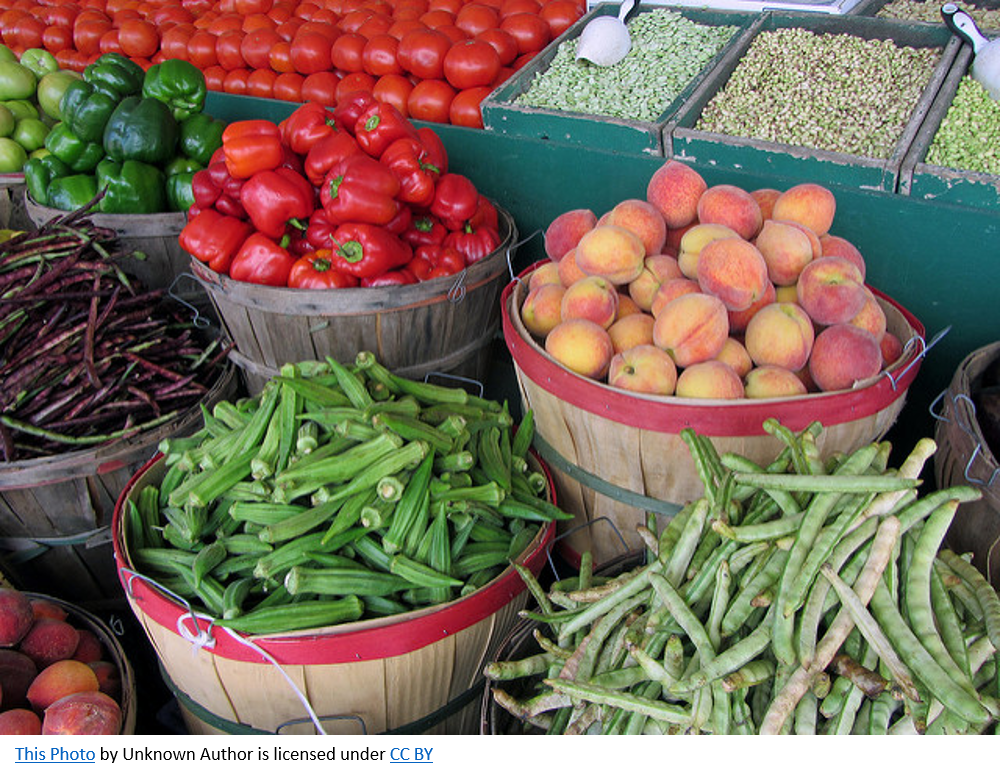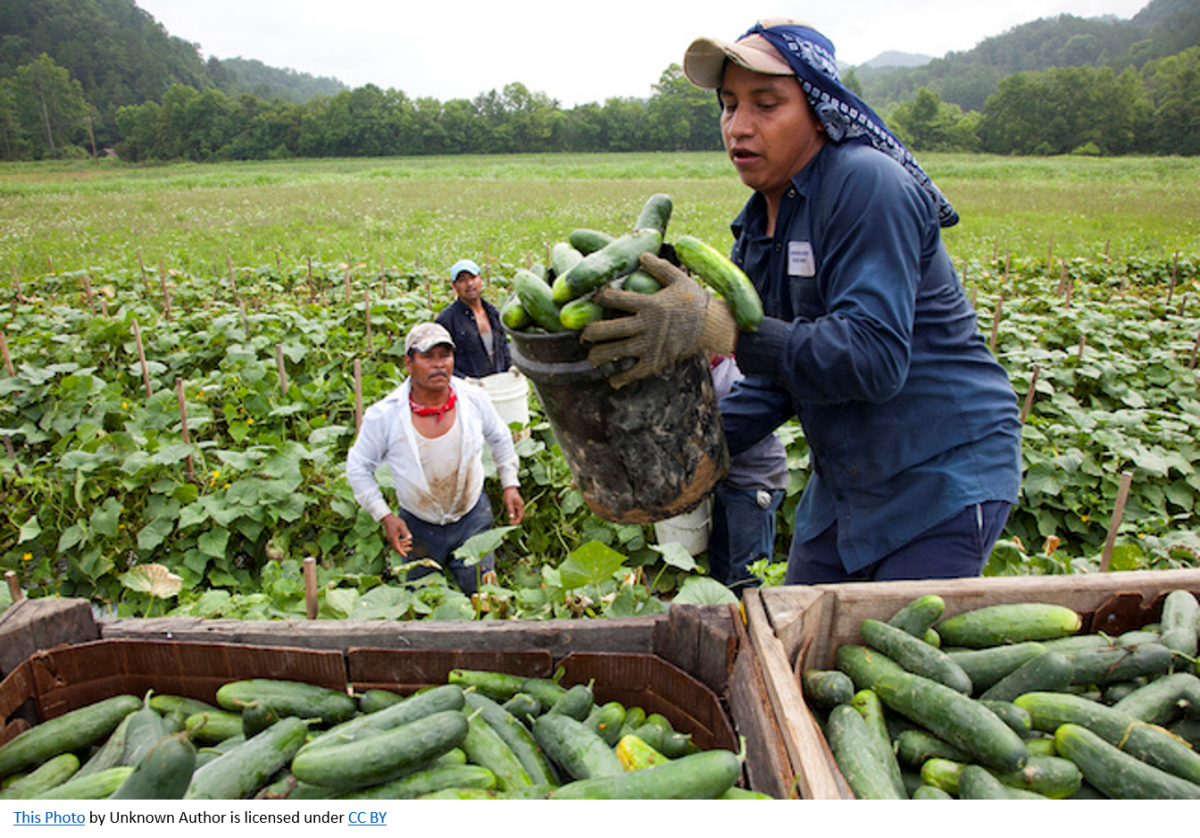 Eating sustainably means more than eliminating food waste. It also means making intentional choices about our food. In the Abrahamic faith tradition, food is a gift from God, mentioned in the creation stories of the Book of Genesis (Genesis 1:29 and 2:16). In its natural form, food has the nutrients we need and connects us to the seasons of God’s creation. However, technology and urbanization have changed the way we eat in the United States. These changes disconnect us from creation, yield food with fewer nutrients, and harm the climate by increasing greenhouse gas emissions.
Eating sustainably means more than eliminating food waste. It also means making intentional choices about our food. In the Abrahamic faith tradition, food is a gift from God, mentioned in the creation stories of the Book of Genesis (Genesis 1:29 and 2:16). In its natural form, food has the nutrients we need and connects us to the seasons of God’s creation. However, technology and urbanization have changed the way we eat in the United States. These changes disconnect us from creation, yield food with fewer nutrients, and harm the climate by increasing greenhouse gas emissions.
Food production in the U.S. is a complex system with lots of variables. As a result, it’s difficult to know the details about specific foods. However, there are general guidelines that will reduce the carbon footprint of your food choices.
Eat Less Processed Food
 We hear reports that say eating too much highly processed food is bad for our health. A seldom mentioned fact is that highly processed food is also bad for the planet’s climate. Unless a food item, such as an orange, looks exactly like it did when harvested, the food is processed. Some food processing, such as freezing and cooking, is necessary for safe transport, storage, and consumption of food in an urbanized society. There is a spectrum of food processing, ranging from minimally processed (e.g., bagged salads and roasted nuts) to heavily processed, sometimes called ultra-processed. Examples of ultra-processed foods are cheese curls, snack cakes, chicken nuggets, soda, chips, sausage, and frozen dinners. In recent years, the amount of processed food we eat has increased, and highly processed foods make up more than 60% of the calories purchased at grocery stores.
We hear reports that say eating too much highly processed food is bad for our health. A seldom mentioned fact is that highly processed food is also bad for the planet’s climate. Unless a food item, such as an orange, looks exactly like it did when harvested, the food is processed. Some food processing, such as freezing and cooking, is necessary for safe transport, storage, and consumption of food in an urbanized society. There is a spectrum of food processing, ranging from minimally processed (e.g., bagged salads and roasted nuts) to heavily processed, sometimes called ultra-processed. Examples of ultra-processed foods are cheese curls, snack cakes, chicken nuggets, soda, chips, sausage, and frozen dinners. In recent years, the amount of processed food we eat has increased, and highly processed foods make up more than 60% of the calories purchased at grocery stores.
Food processing requires energy and emits greenhouse gases. The more processed a food product is, the more ingredients it's likely to have. These ingredients require transportation, and some may be artificial, meaning energy was used to manufacture them. We can reduce the carbon footprint of our food, live more sustainably, and be healthier by eating less processed food.
Eat More Seasonal Food
 Fruits and vegetables bought out of season have either been stored a long time or shipped a long distance. Both require energy, and both result in lower nutrient values. Eating in season is a spiritual discipline of eating what the earth provides. This way of eating acknowledges the passing of time, the natural rhythms of God’s creation, and our place in it. Here are some resources for planning meals that are in season in Texas:
Fruits and vegetables bought out of season have either been stored a long time or shipped a long distance. Both require energy, and both result in lower nutrient values. Eating in season is a spiritual discipline of eating what the earth provides. This way of eating acknowledges the passing of time, the natural rhythms of God’s creation, and our place in it. Here are some resources for planning meals that are in season in Texas:
Texas Farmers Markets Directory
Eat More Organic Food
 While there is some debate about whether organic foods are better for the consumer, two important points often are missed. First, depending on the type of food, organic agriculture uses between 30 and 50 percent less energy than non-organic agricultural practices, meaning its greenhouse gas emissions are reduced. Second, and of special concern for people of faith, organic production methods are safer for farm workers and their families. It’s estimated that pesticides poison as many as 20,000 farm workers each year. The actual number is not known because there is no uniform, national reporting standard and enforcement is inconsistent. Organic food is typically more expensive because energy inputs are replaced with labor inputs. When confronted with this price difference, people of faith turn to their religious teachings for guidance on the way we are to treat God’s creation and our neighbor. Even choosing organic for an item or two each week makes a difference.
While there is some debate about whether organic foods are better for the consumer, two important points often are missed. First, depending on the type of food, organic agriculture uses between 30 and 50 percent less energy than non-organic agricultural practices, meaning its greenhouse gas emissions are reduced. Second, and of special concern for people of faith, organic production methods are safer for farm workers and their families. It’s estimated that pesticides poison as many as 20,000 farm workers each year. The actual number is not known because there is no uniform, national reporting standard and enforcement is inconsistent. Organic food is typically more expensive because energy inputs are replaced with labor inputs. When confronted with this price difference, people of faith turn to their religious teachings for guidance on the way we are to treat God’s creation and our neighbor. Even choosing organic for an item or two each week makes a difference.

